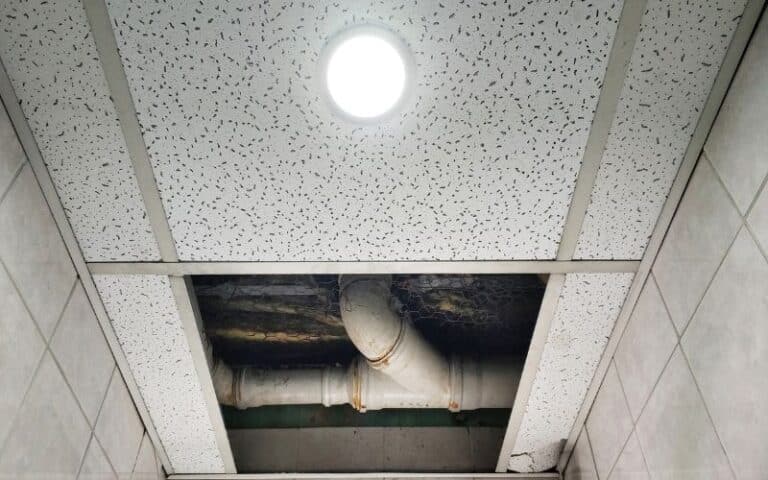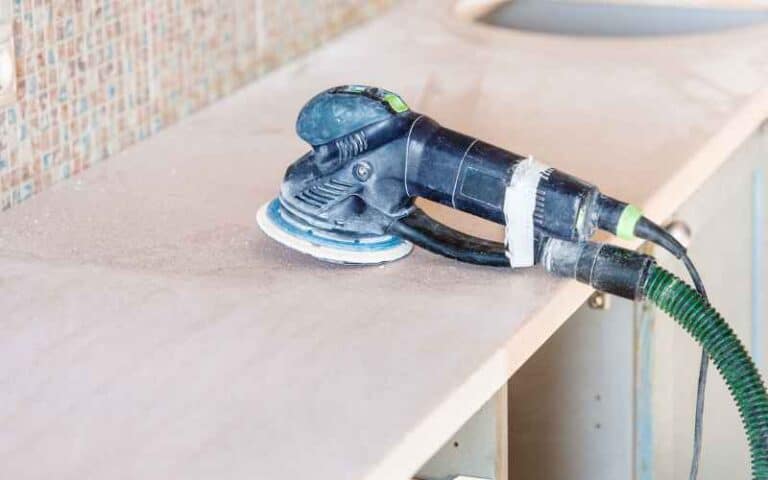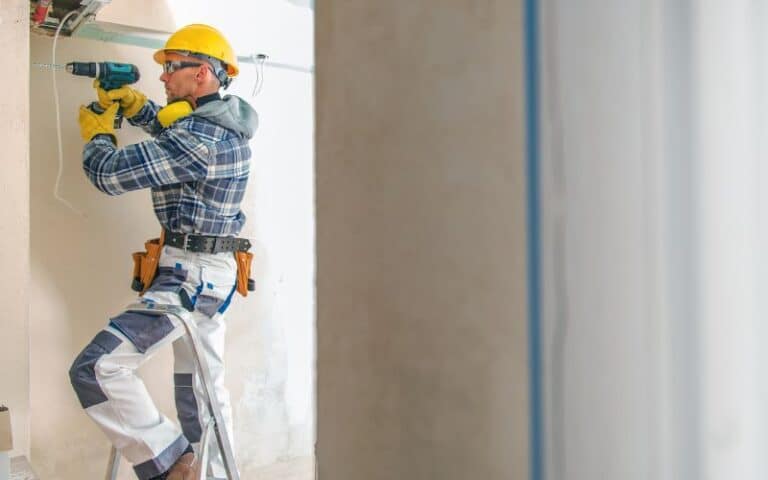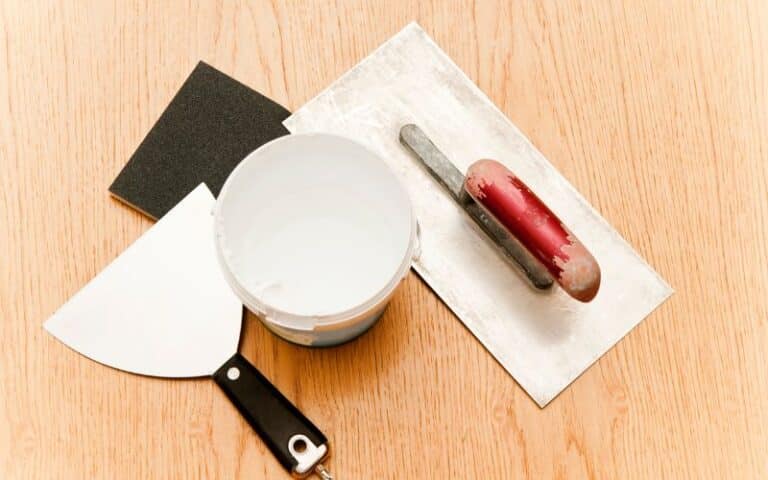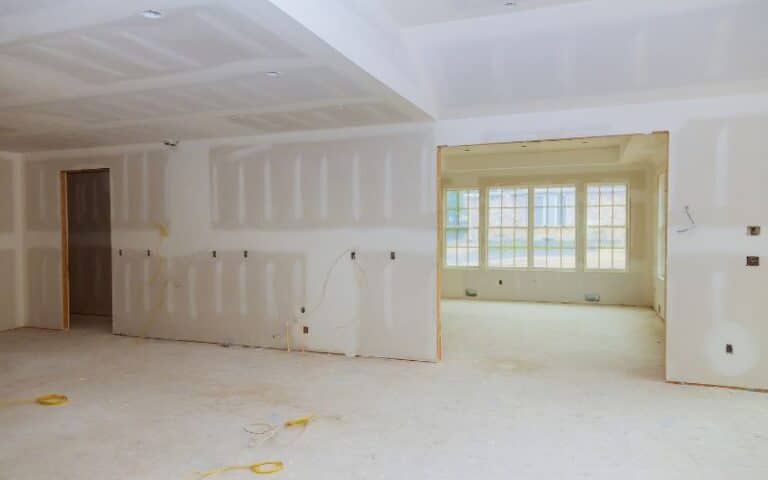Drywall Anchors have become the go-to options for securing objects to drywalls, from lightweight pictures and TVs to heavy shelves and cabinets.
And choosing the right one can be difficult, with different types of wallboard anchors flooding the market.
Plastic and metal are the common materials used in making these devices, each serving their purpose effectively.
However, DIYers may need help to know which is best for them. So, which type will serve you better?
Plastic drywall anchors are the most popular anchoring device on the market. They’re excellent for lightweight objects and are a great choice for many households. On the other hand, metal drywall fasteners are excellent for hanging heavier objects and have greater strength. While both devices can help mount different objects on drywalls, they differ in various ways.
In this article, I’ll give you a detailed comparison between plastic and metal drywall anchors. You’ll know their differences, whether they’re good, and which is better on drywalls.
Ultimately, you’ll know how much weight plastic drywall hooks can hold.
Ready for a Drywall Quiz?
What Is the Difference Between Plastic and Metal Drywall Anchors?
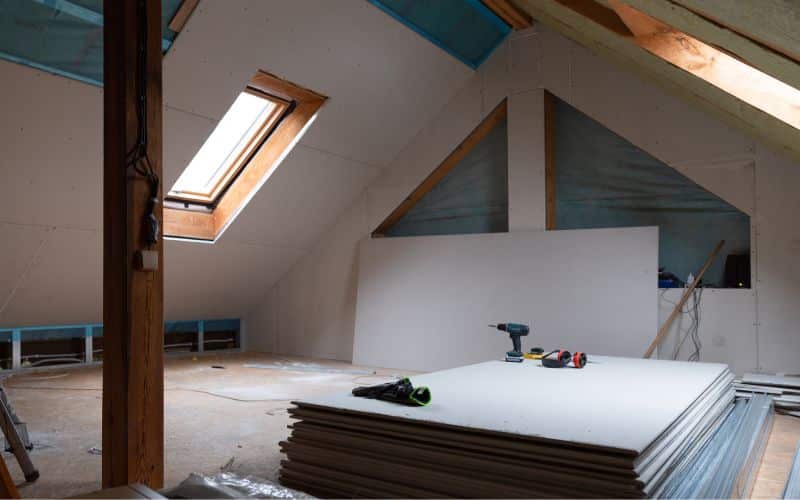
There are several differences between plastic and metal drywall anchors. The first difference between these fasteners is in the design.
While a plastic plasterboard anchor is usually a sleeve with an opening that allows you to drive screws into it, a metal anchor incorporates many designs.
The many designs of metal drywall hooks allow for broader application in households and the industry. Also, the strength and application of both anchors differ, even the price.
Below, I’ll discuss the differences between a plastic and a metal drywall anchor:
#1. Design
A plastic plasterboard fastener usually incorporates a plastic sleeve with an opening for driving screws into.
These sleeves may have a serrated or ribbed body with a separation down the center and expand when inserting a screw to grip a hole.
Also, some designs are screw-like and drill holes on insertion, and some have wings that expand when tightening a screw.
These designs make them lightweight and better for hanging lightweight objects. However, the weight each anchor can hold slightly differs, depending on the type.
On the other hand, a metal drywall anchor has many designs for different and broader applications.
The molly bolt and toggle bolts are the most common metal fasteners for heavy-duty applications.
These metal anchors comprise steel or zinc material. However, steel is the most common type because of its strength and availability.
#2. Strength
Regarding the strength of drywall anchors, metal fasteners perform better. A metal drywall anchor is more potent and can hold more weight than a plastic wallboard anchor.
Also, they’re excellent for other wall types, including cement, wood, and concrete blocks. In addition, you can use some of them on the ceiling.
In addition, the toggle bolt metal anchor can hold up to 300 pounds, depending on the size.
On the other hand, plastic anchors have lesser strength and are suitable for lighter objects in the house. They can hold weights between 10– 75 pounds.
#3. Application
As I’ve earlier established, plastic wallboard anchors are suitable for lighter objects which include: small mirrors, lightweight picture frames, small shelves, and lightweight tools.
Also, they’re specifically for drywalls in the home or your offices. Using this anchor on cement or other wall types will serve you less effective.
However, they’re particular types that can work on other walls apart from drywalls.
Conversely, as I’ve already stated, some metal drywall anchors are great for other wall types. This broader application is due to its design and strength.
They’re suitable for industrial applications and can anchor large and heavy objects to drywalls, concrete, and ceilings.
#4. Installation
Although some drywall anchors, whether plastic or metals, have similar installation methods, specific designs will differ in steps when fitting into the wall.
For instance, installing plastic and metal expansion anchors follow the same basic steps. However, a toggle bolt anchor installation differs from other types of anchors.
Follow these steps to install your drywall anchors.
#5. Cost
The price is another feature that differs between plastic and metal anchors.
Plastic drywall fasteners are less expensive than their metal counterparts. They’re the cheapest anchors you’ll find on the market.
They cost as low as $4 and as high as $24 and more, depending on the type, brand, and quantity.
On the other hand, metal drywall fasteners cost more because of their more extensive application, the cost of the materials, and their durability and strength.
The price of these anchors varies depending on the type and brand.
Are Plastic Drywall Anchors Good?
Yes, plastic drywall anchors are good. They’re the best choice for lightweight jobs.
However, different plastic fasteners are available, and the best one for you depends on the job type you want.
In addition, they also have their disadvantages, which you should consider before purchasing one.
I’ll discuss the popular type of plastic drywall anchors below to help you know which is good for you.
#1. Expansion Anchors
Plastic expansion anchors are the most popular drywall anchors on the market. They’re also low-cost, easy to use, and easy to install.
However, you’d have to drill a pilot hole before inserting your anchor.
In addition, these fasteners have serrated sleeves with a split down the center. They expand when you insert a screw to grip the hole tightly.
Plus, you can use these expansion anchors on concrete, wood, or brick. However, they only provide a little strength and can handle weights under 30 pounds.
#2. Self-drilling Anchors
Plastic self-drilling anchors are also called threaded anchors. They suit medium-duty jobs and can handle more weight than expansion anchors.
Instead of an expanding tip, these anchors look like a screw with wide threads that bite into the drywall on insertion.
In addition, these fasteners don’t require any pilot holes. You only have to screw it into your drywall with a screwdriver.
Also, plastic self-drilling anchors can take up to 50 pounds depending on the size.
#3. Winged Anchors
Winged plastic anchors are another type of plastic anchor. They’re also called butterfly drywall anchors.
These anchors have wings on the side that expands when you tighten the screw to create a firm hold.
Also, like expansion anchors, you’d have to create pilot holes before inserting the anchor.
In addition, they handle lightweight objects of about 25 pounds.
Are Metal Drywall Anchors Good?
Yes, metal drywall anchors are good. They’re the best option for heavy-duty jobs. You’ll also find different metal drywall anchors for different purposes.
Therefore, you should choose based on what you want to mount on your drywall.
Below, I’ll analyze the two common types of metal drywall anchors to help you with your best choice.
#1. Molly Bolt Anchors
The molly bolt anchors are one of the most popular drywall metal hooks. They’re some of the most potent options available.
They are more fitting for hollow drywalls, tiles, ceilings, and other thin materials.
Moreover, they’re made from zinc or steel and have excellent durability. Also, its design features an outer metal casing around a long screw.
This metal sleeve expands once you tighten the screw and allows it to fasten onto the wall surface.
Plus, they’re great for weights up to 100 pounds. However, they’re difficult to remove once installed. You also have to predrill a hole before inserting the anchor.
Also, before purchase, check for a suitable anchor for your wall thickness.
#2. Toggle Bolts Anchors
Toggle bolt anchors are another popular type of metal anchor. Depending on the design, they’re the strongest metal anchors and can hold loads up to 300 pounds.
These fasteners comprise a screw and wings that lock into place for a secure hold.
Also, they’re the best choice to hang your TVs, bookshelves, large portraits, electronic devices, and other heavy objects.
Additionally, there are other metal wallboard anchors, including the expansion and self-drilling types. They work like plastic-type and can hold more weight.
What is the Best Anchor to Use in Drywall, Metal, or Plastic?
The best anchor to use in drywall will depend on the type and weight of the object you’d be mounting and the thickness of your drywall.
First, drywall is a versatile material. While plastic hooks will work well on drywalls because of their lightness, you must be careful when choosing a metal anchor.
If you choose a heavy metal anchor, ensure your drywall is thick enough to handle the weight.
Moreover, as I’ve earlier established, plastic wallboard anchors are great for lightweight objects.
At the same time, metal fasteners will mount your medium to heavy-sized objects securely.
Therefore, there’s no definite answer to which is better in drywalls. It depends on what you’d hang on the wall and the thickness.
Below is a table comparing plastic and metal drywall anchors to aid your choice.
| Plastic Drywall Anchors | Metal Drywall Anchors |
|---|---|
| They’re less expensive | They’re more costly |
| They’re not as strong as metal anchors | They’re firm |
| They’re best for lightweight objects | They’re excellent for heavy objects |
| They’ve got a good range of applications | They’ve wider applications |
| Some designs require you to drill a pilot hole before installation | Some designs also require you to drill a pilot hole first |
| They’re available in different sizes | They also come in several designs and sizes |
What Weight Can Plastic Drywall Anchors Hold?
The weight a plastic drywall anchor can hold will depend on the type and design of the anchor.
Usually, they’re suitable for objects between 10 – 75 pounds; they can handle lightweight to medium-weight items.
Below is a table showing the type of plastic drywall anchors and the weight they can hold.
| Plastic Drywall Anchors | Weight Limit in Pounds (lb) |
|---|---|
| Expansion anchors | 25 |
| Self-drilling anchors | 75 |
| Winged anchors | 25 |
| Alligator anchors | 70 |

